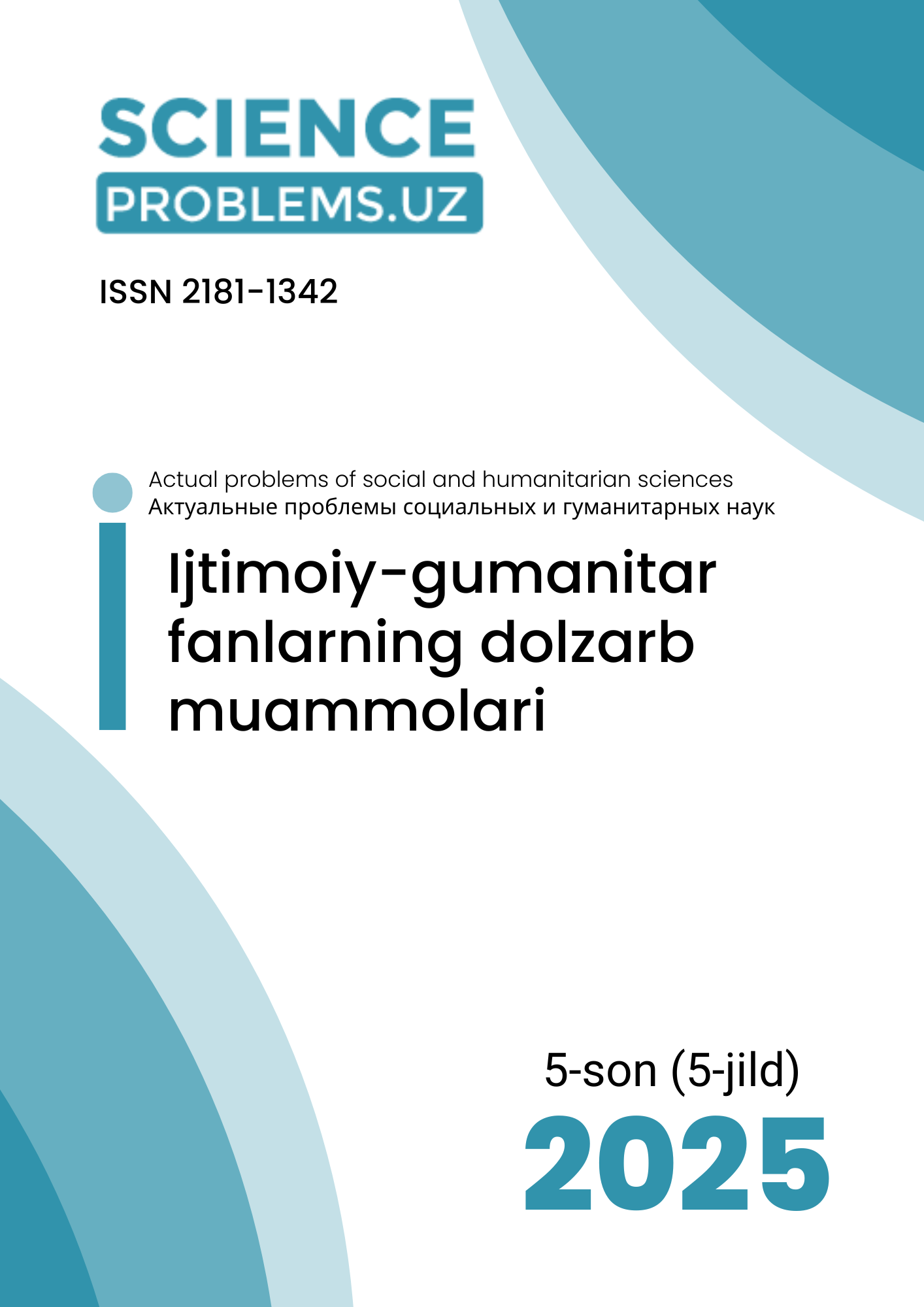РОЛЬ САМОСТОЯТЕЛЬНОЙ РАБОТЫ СТУДЕНТОВ В РАЗВИТИИ КОМПЕТЕНТНОСТИ БУДУЩИХ УЧИТЕЛЕЙ МАТЕМАТИКИ ПО ПЛАНИМЕТРИИ
DOI:
https://doi.org/10.47390/SPR1342V5I5Y2025N92Ключевые слова:
элементарная математика, планиметрия, самостоятельная работа, принцип, принцип открытости и саморазвития системы, принцип постижимости, принцип сознательности и активности, принцип человеческих приоритетов, принцип научности, принципы целесообразности и природной гармонии.Аннотация
Изучаемая компетенция слабо формируется в процессе решения часто встречающихся в задачниках и учебниках типовых задач, выраженных в виде стандартных требований (найти, доказать, вычислить, заменить). Проблема кроется именно в недостатке информации, и ее решение требует полноценной работы с этой информацией. Студенты оказываются в ситуациях, когда им необходимо искать недостающую информацию, выбирать необходимую информацию, анализировать ее, организовывать, хранить, а иногда и передавать. Одним из результатов решения задач является субъективно полученная учащимися новая информация. При этом информацию они обычно получают самостоятельно, с минимальной помощью учителя. лучше усваивается, поскольку становится достижением для ученика и группы в целом. Поэтому развитие навыков самостоятельной работы, как в классе, так и за его пределами, позволит студентам в будущем стать компетентными специалистами в выбранной ими профессии. Безусловно, самостоятельная работа является основой образования студентов педагогических вузов, и ее реализация во многом зависит от качества организации самостоятельной работы студентов на занятиях и во внеучебное время.
Библиографические ссылки
1. Bozorov Zokir Yuldosh o‘g‘li “Using the coordinate-vector method in solving planametrik problems” International journal of social science & interdisciplinary research ISSN: 2277-3630 Impact factor: 7.429 IJSSIR, Vol. 12, No. 05. May 2023. – B. 97-99.
2. Zokir Yuldosh o‘g‘li Bozorov “Ta’lim sifati menejmenti va unga bo‘lgan yondashuvlar” research and education, Scientific Journal Impact Factor 2023: 5.789, ISSN: 2181-3191,VOLUME 2 | ISSUE 5 | 2023.
3. Zokir Yuldosh O‘G‘Li Bozorov “Conceptual basis of training of mathematics teachers” INTERNATIONAL JOURNAL OF SOCIAL SCIENCE & INTERDISCIPLINARY RESEARCH ISSN: 2277-3630 Impact Factor: 8.036, 13(03), 61–63.
4. Балл, Г. А. Теория учебных задач: психолого-педагогический аспект [Текст] / Г.А. Балл. – М.: Педагогика, 1990. – 183 с.
5. Епишева, О. Б. Технология обучения математике на основе деятелностного под¬хода: кн. для учителя [Текст] / О.Б. Епишева. - М.: Просвещение, 2003. – 223 с.
6. Колягин, Ю. М. Задачи в обучении математике [Текст]. 41/ Ю.М. Колягин. - М.: Просвещение, 1977. - 110 с.
7. Крупич, В. И. Теоретические основы обучения решению школных математиче¬ских задач [Текст] / В.И. Крупич. – М.: Прометей, 1995. – 166 с.
8. Машбис, Б. И. Психолого-педагогические проблемы компютеризatsiи обучения [Текст] /Б.И. Машбис. – М.: Педагогика, 1998.
9. Пономарев, Я.Л. Психология творчества [Текст] / Я.Л. Пономарев. - М.: Педагогика, 1976.
10. Славская, К. А. Детерминatsiя процесса мышления [Текст] / К.А. Славская // Ис¬следование мышления в советской психологии. – М., 1966.








